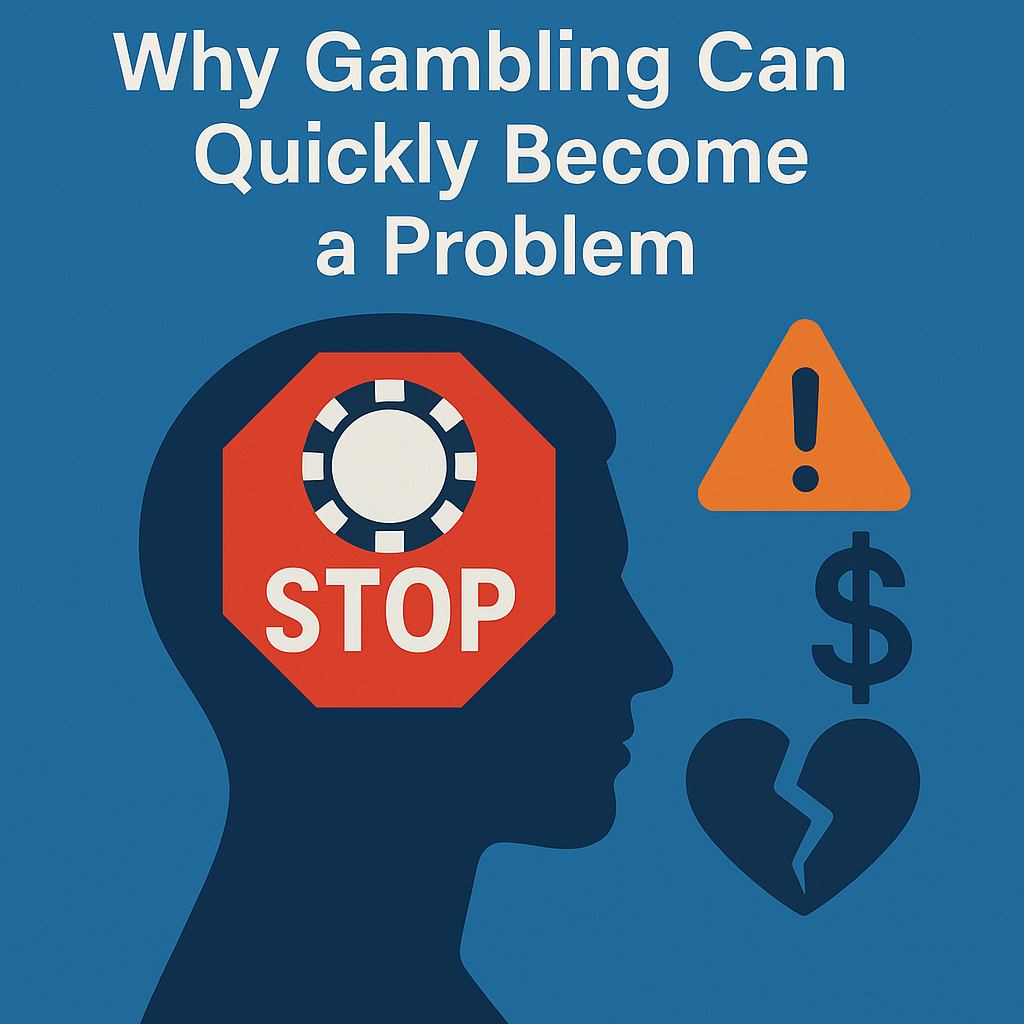
What begins as a fun and occasional activity can quietly turn into a serious addiction. Gambling problems often go unnoticed until finances, relationships, or mental health are already affected. Understanding how and why gambling becomes harmful is key to protecting yourself or someone you care about.
Gambling stimulates the brain’s reward system in a similar way to drugs or alcohol. Wins — even small ones — trigger the release of dopamine, creating a cycle of excitement and anticipation. Over time, this can lead to cravings and dependency, where the urge to gamble outweighs logic or consequences.
Easy access to gambling platforms (online or offline)
Stress, anxiety, or depression
Low self-esteem or emotional trauma
Financial pressure or the desire for fast money
Isolation and lack of support systems
Chasing losses and betting more than you can afford
Hiding gambling activity from friends or family
Feeling anxious or restless when not gambling
Borrowing money or selling belongings to place bets
Neglecting work, studies, or relationships
Lying to cover up how much time or money is spent
Acknowledging the issue is the first and most powerful step. Seek support from professionals, talk to trusted people in your life, and avoid triggers or high-risk environments. You’re not alone — recovery is always possible.